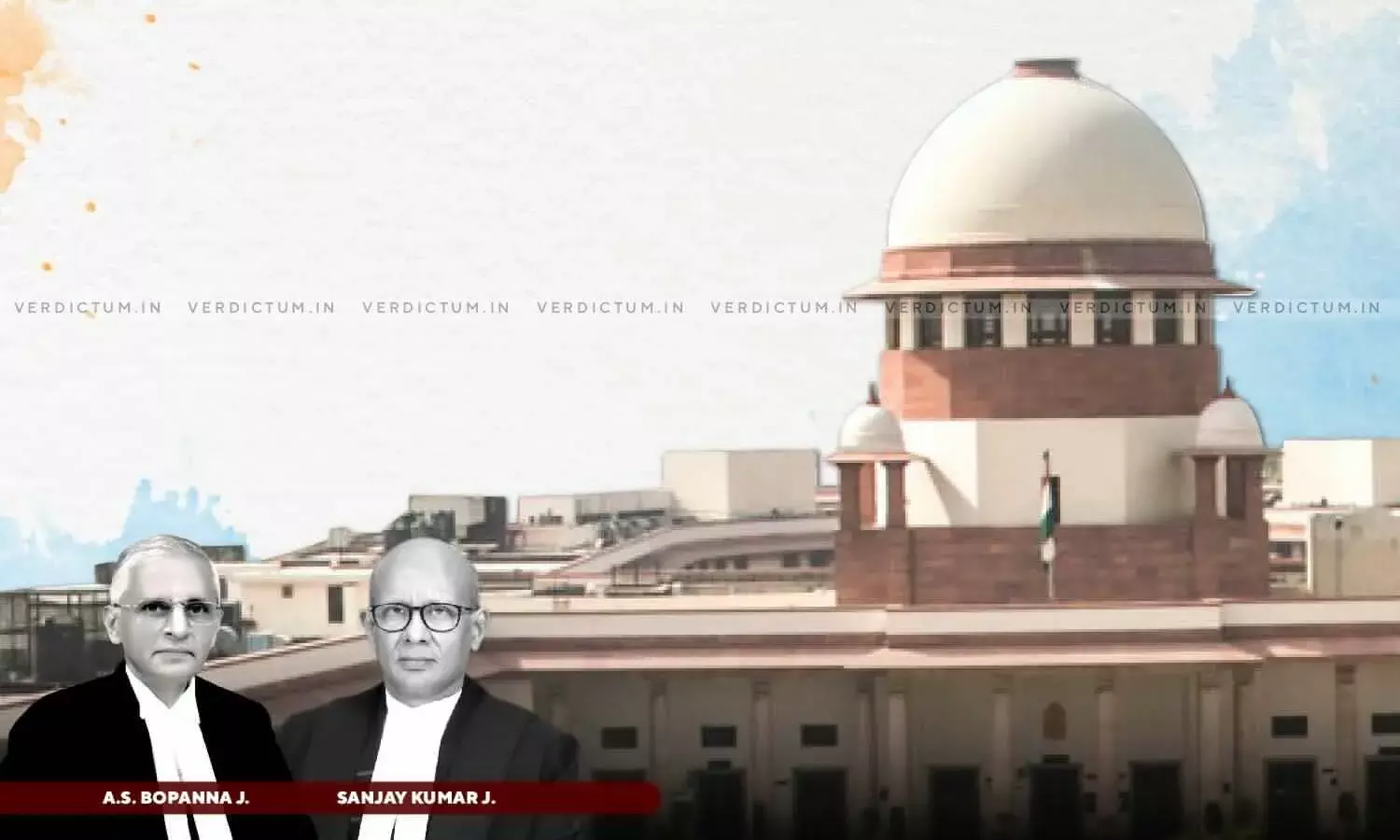Seizure/Confiscation Of Sandalwood U/S 52 & 61A Kerala Forest Act Requires Authorities To Conclude There Is ‘Reason To Believe’ That ‘Forest Offence’ Is Committed: SC
The Supreme Court observed that Sections 52 and 61A of the Kerala Forest Act, 1961, dealing with seizure and confiscation of sandalwood etc., required an officer concerned to come to the conclusion that there was a ‘reason to believe’ that a ‘forest offence’ had been committed.
The Bench reiterated that the formation of an opinion under Sections 52 and 61A of the Kerala Forest Act, 1961 (the Forest Act) as to the expression ‘reason to believe’, may be subjective and it must be based on material on the record and cannot be "arbitrary, capricious or whimsical."
Justice A.S. Bopanna and Justice Sanjay Kumar observed: "Be it noted that Sections 52 and 61A of the Forest Act, dealing with seizure and confiscation of sandalwood etc., require the officer concerned to come to the conclusion that there was a ‘reason to believe’ that a ‘forest offence’ has been committed. Section 2(e) of the Forest Act defines a ‘forest offence’ to mean an offence punishable under the Forest Act or any Rule made thereunder"
Senior Advocate Jayanth Muth Raj represented the appellants, while Sr. Advocate Gaurav Aggarwal appeared for the respondents.
The Kerala High Court had set aside the order of confiscation of sandalwood as there was no evidence of any ‘forest offence’ that was committed, whereby the power of confiscation under Section 61A (2) of the Forest Act could have been invoked. Aggrieved by the same, the State of Kerala and its Divisional Forest Officers filed appeals before the Apex Court.
The respondents claimed ownership and possession over specific parcels of land in the forest area and submitted applications for the issuance of certificates for the sandalwood trees fallen on ‘their’ lands. The applications were made under the 1973 Government Order, which allowed the Forest Department to auction sandalwood trees grown on private lands.
The Supreme Court was surprised to learn that the Forest Department in the State of Kerala had not maintained a record of the sandalwood trees growing in reserved forest lands.
The Court noted, “It is an admitted fact that earlier, during the year 1995, sandalwood trees which had grown in the lands of P.J. Antony were sold in consultation with the Forest Department as per the Government’s scheme. This fact is sufficient to indicate that sandalwood trees did grow in these lands. The documentation of the trees found in these lands in the year 2001, certified by the Revenue officials, is not liable to be rejected or eschewed as the Forest Department was unable to elicit anything to the contrary in the cross-examination of these officials.”
Earlier, a Division Bench of the Kerala High Court had directed the constitution of a monitoring cell for the numbering and marking of all sandalwood trees. These directions came after a PIL was filed in the context of illegal felling and removal of sandalwood trees from the forest lands in the Marayoor and Chinnar Forest Ranges as well as adjacent villages.
"It is indeed surprising, if not shocking, that the Forest Department in the State of Kerala had not maintained a record of the sandalwood trees growing in reserved forest lands and also private patta lands. There was no marking of such trees to identify them for the purpose of such record… the failure of the Forest Department in keeping track of and maintaining a clear record of the sandalwood trees in the year 2001 needs to be understood.", the court added.
Consequently, the Bench held that the High Court was justified in setting aside the confiscation order.
Accordingly, the Supreme Court dismissed the appeals.
Cause Title: The Divisional Forest Officer, Munnar, Kerala & Anr. v. P.J. Antony & Ors. (Neutral Citation: 2024 INSC 412)
Appearance:
Appellant: Sr. Advocate Jayanth Muth Raj; AOR Nishe Rajen Shonker; Advocates Anu K Joy and Alim Anvar
Respondents: Sr. Advocate Gaurav Aggarwal; AOR K.Parameshwar; Advocates Saiby Jose Kidangoor, Kanti, Chinmay Kalgaonkar and Raji Gururaj




